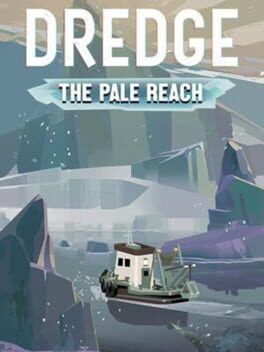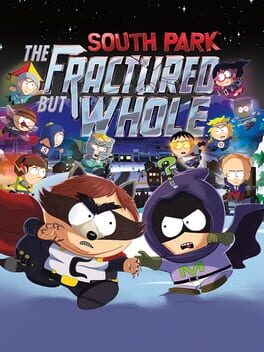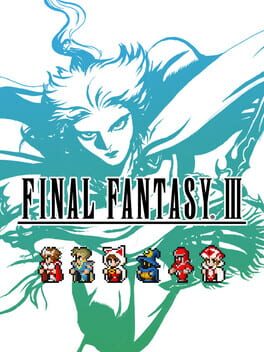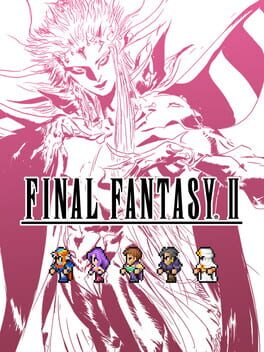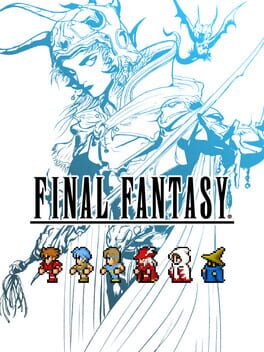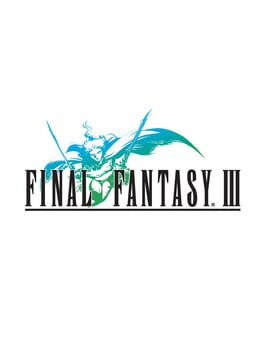trpginger
2010
An extremely fun experience in the Fallout setting, but a technical nightmare when playing on the PC.
In order to make the game crash every 4-5 hours instead of the 30 minute intervals it normally takes, it's absolutely necessary for you to install the NVSE (script extension) and NVAC (anti-crash) mod. Simple installations, but it's frustrating that it's necessary to have an enjoyable experience on a modern PC.
The story is, much like the wasteland itself, rather bland. It's just a short revenge quest that doesn't have the greatest of finales. The true excitement of this game comes from exploring and learning more about what went on in the Mojave region after the bombs dropped, diving into ruined Vaults to learn their dark secrets (Vault 11 is featured in this game...), and making bloody messes throughout your entire trek.
In order to make the game crash every 4-5 hours instead of the 30 minute intervals it normally takes, it's absolutely necessary for you to install the NVSE (script extension) and NVAC (anti-crash) mod. Simple installations, but it's frustrating that it's necessary to have an enjoyable experience on a modern PC.
The story is, much like the wasteland itself, rather bland. It's just a short revenge quest that doesn't have the greatest of finales. The true excitement of this game comes from exploring and learning more about what went on in the Mojave region after the bombs dropped, diving into ruined Vaults to learn their dark secrets (Vault 11 is featured in this game...), and making bloody messes throughout your entire trek.
A very small expansion for its price tag, but "The Pale Reach" delivers more of what we've come to love in Dredge.
Plot-wise, it does not impact the game in any way and is not necessary to enjoying the overall mystery.
Gameplay-wise, it offers a new island to explore, new creatures to bring up from the depths, and some more gear for your ship specifically tailored to dealing with the new environment.
Plot-wise, it does not impact the game in any way and is not necessary to enjoying the overall mystery.
Gameplay-wise, it offers a new island to explore, new creatures to bring up from the depths, and some more gear for your ship specifically tailored to dealing with the new environment.
Let me preface this review by saying the only thing that detracted from my experience of this where "The Stick of Truth" did not was the simple fact that I like high fantasy more than superhero storytelling.
Aside from that, this felt like a perfect evolution of the game from its predecessor. Combat was far more strategic and having an ever-expanding hoard of abilities to switch between at any time really helped create a unique experience for each of the two playthroughs I went through to get all achievements (though Blaster/Plantmancer became my overpowered build).
The story once again felt like a multi-part South Park episode, up to the very abrupt ending reminiscent of the older episodes of the show. It succeeds in mimicking/mocking modern Marvel films in an increasingly convoluted plot in a way we've come to expect from South Park's writers.
If I had to make one light complaint about the game, it's that the game becomes heavily reliant on your companion's exploration abilities. While they are all pretty funny, having to repeat their specific button commands so often made me wish it was just a matter of summoning the right buddy and watching the outcome unfold. They were, however, short enough to warrant a mild annoyance at most, and didn't detract heavily from the overall experience.
Definitely play "The Stick of Truth" before tackling this one. Not only does the first game's plot play a part in this sequel's story, but it will also get you warmed up for this particularly fun style of turn-based RPG.
Aside from that, this felt like a perfect evolution of the game from its predecessor. Combat was far more strategic and having an ever-expanding hoard of abilities to switch between at any time really helped create a unique experience for each of the two playthroughs I went through to get all achievements (though Blaster/Plantmancer became my overpowered build).
The story once again felt like a multi-part South Park episode, up to the very abrupt ending reminiscent of the older episodes of the show. It succeeds in mimicking/mocking modern Marvel films in an increasingly convoluted plot in a way we've come to expect from South Park's writers.
If I had to make one light complaint about the game, it's that the game becomes heavily reliant on your companion's exploration abilities. While they are all pretty funny, having to repeat their specific button commands so often made me wish it was just a matter of summoning the right buddy and watching the outcome unfold. They were, however, short enough to warrant a mild annoyance at most, and didn't detract heavily from the overall experience.
Definitely play "The Stick of Truth" before tackling this one. Not only does the first game's plot play a part in this sequel's story, but it will also get you warmed up for this particularly fun style of turn-based RPG.
2021
This review contains spoilers
This is the game where I really began to see the start of everything we've come to expect from generic JRPG's. Young adventurers embracing the light to fight the forces darkness threatening to shroud all existence. It's your typical fare.
Coming from Final Fantasy II's "build-your-own-hero" system to this far more limiting "Jobs System" was a real let-down, but the Jobs introduced are a fun idea. There are 22 jobs to choose from, but it seems that by the end of the game only about 5-7 are worth investing levels into. Many are simply upgraded versions of prior Jobs, which only makes it feel less worthwhile that you've leveled up an all-powerful Black Mage only to need to start back at Job Level 1 when you unlock Magus near the end of the game.
Of the first three installments, this was by far the grindiest of the series. There are two moments throughout the game where the XP gain jumps tremendously, but the first one doesn't happen until about 1/3rd of the way through the journey. This means you'll be grinding for small percentages each fight just to make yourself strong enough to take on some decently-challenging bosses. This wouldn't have been as much of an issue, however, if the game didn't have some mind-numbingly frustrating design choices. Not the least of which is how you restore your party's HP and MP...
In the prior Final Fantasy games, you can rest at Inns in towns, often for a small price. This feature is also present in this game. When out in the wilds, though, you needed the "tent" or "cottage" items to act as portable Inns. They came with a hefty price, but were well worth it to spare you having to march all the way back to a distant town just to rest up and potentially lose HP and MP getting back to where you were. These items are removed from Final Fantasy III, and it makes every single time you need to heal a headache until you eventually (about 90% of the way through the game) get a semi-permanent cottage.
On my quest to complete all the offline games in this franchise, this is the first that's truly hard to recommend. If you're like me and want to see the evolution of THE core JRPG series that defined role-playing video games, then you won't want to pass this one up.
You might want to stay away from the Nintendo DS port (which is also now on PC), though. Everything good stays the same, but everything bad only gets worse in that messy remake.
Coming from Final Fantasy II's "build-your-own-hero" system to this far more limiting "Jobs System" was a real let-down, but the Jobs introduced are a fun idea. There are 22 jobs to choose from, but it seems that by the end of the game only about 5-7 are worth investing levels into. Many are simply upgraded versions of prior Jobs, which only makes it feel less worthwhile that you've leveled up an all-powerful Black Mage only to need to start back at Job Level 1 when you unlock Magus near the end of the game.
Of the first three installments, this was by far the grindiest of the series. There are two moments throughout the game where the XP gain jumps tremendously, but the first one doesn't happen until about 1/3rd of the way through the journey. This means you'll be grinding for small percentages each fight just to make yourself strong enough to take on some decently-challenging bosses. This wouldn't have been as much of an issue, however, if the game didn't have some mind-numbingly frustrating design choices. Not the least of which is how you restore your party's HP and MP...
In the prior Final Fantasy games, you can rest at Inns in towns, often for a small price. This feature is also present in this game. When out in the wilds, though, you needed the "tent" or "cottage" items to act as portable Inns. They came with a hefty price, but were well worth it to spare you having to march all the way back to a distant town just to rest up and potentially lose HP and MP getting back to where you were. These items are removed from Final Fantasy III, and it makes every single time you need to heal a headache until you eventually (about 90% of the way through the game) get a semi-permanent cottage.
On my quest to complete all the offline games in this franchise, this is the first that's truly hard to recommend. If you're like me and want to see the evolution of THE core JRPG series that defined role-playing video games, then you won't want to pass this one up.
You might want to stay away from the Nintendo DS port (which is also now on PC), though. Everything good stays the same, but everything bad only gets worse in that messy remake.
2021
It's Final Fantasy: Star Wars!
While the story is anything but original, the characters in this installment have a way of making you quickly invested in their heavily Lucas-inspired plot straight away. Leaving the fourth party member slot for the occasional story-relative characters helps to show you where you could go with your three primary characters, whom you have total control over when it comes to how they play.
Mechanically speaking, this game feels like a giant leap forward from both its predecessor and its successor. You have the ability to take your three primary characters and make literally any party combination you could ask for. Want a priest who dual wields spears? Equip the character with the spears and work up their white magic spells! Want an arcane archer? Give 'em a bow and learn some offensive black magic spells! This was such a fun and free concept that was, unfortunately, abandoned for the far more limiting "Jobs System" to come in the next sequel.
The Pixel Remaster does exactly what you want it to do: takes the original game, polishes it, and gives it modern conveniences to make it a more enjoyable experience for everyone in today's gaming sphere.
Of the initial three Final Fantasies, this one gets my highest praise and strongest recommendation.
While the story is anything but original, the characters in this installment have a way of making you quickly invested in their heavily Lucas-inspired plot straight away. Leaving the fourth party member slot for the occasional story-relative characters helps to show you where you could go with your three primary characters, whom you have total control over when it comes to how they play.
Mechanically speaking, this game feels like a giant leap forward from both its predecessor and its successor. You have the ability to take your three primary characters and make literally any party combination you could ask for. Want a priest who dual wields spears? Equip the character with the spears and work up their white magic spells! Want an arcane archer? Give 'em a bow and learn some offensive black magic spells! This was such a fun and free concept that was, unfortunately, abandoned for the far more limiting "Jobs System" to come in the next sequel.
The Pixel Remaster does exactly what you want it to do: takes the original game, polishes it, and gives it modern conveniences to make it a more enjoyable experience for everyone in today's gaming sphere.
Of the initial three Final Fantasies, this one gets my highest praise and strongest recommendation.
2021
Was really fun to experience this game with 37 years of RPG hindsight. Above all else, this game feels like someone had a lot of fun playing Dungeons & Dragons with their friends and decided to make a video game about it.
The Pixel Remaster adds a lot of quality-of-life updates that make it much more enjoyable than the original, since the likely audience for this release are now older and have busier lives than they did back when this game first dropped. Having access to bonus features like the original concept art and a music player (original and orchestral OST's) is a nice touch, and getting to see the same pixel graphics but with crystal clarity and smooth framerates is a perfect nostalgia boost.
The story is very aged, as is to be expected of a game nearly 40 years old, but is probably the most straightforward and least-tropey of the early Final Fantasies (lookin' at you, FFIII). Because of this, the game doesn't last as long as you'd expect it to, even when 100%-ing the thing, and you might be surprised to have paid more than $10 on such a quick game if you didn't get it on sale.
Highly recommend this particular version for anyone interested in taking a peek at the origin of many things we've come to take for granted in modern role-playing games.
The Pixel Remaster adds a lot of quality-of-life updates that make it much more enjoyable than the original, since the likely audience for this release are now older and have busier lives than they did back when this game first dropped. Having access to bonus features like the original concept art and a music player (original and orchestral OST's) is a nice touch, and getting to see the same pixel graphics but with crystal clarity and smooth framerates is a perfect nostalgia boost.
The story is very aged, as is to be expected of a game nearly 40 years old, but is probably the most straightforward and least-tropey of the early Final Fantasies (lookin' at you, FFIII). Because of this, the game doesn't last as long as you'd expect it to, even when 100%-ing the thing, and you might be surprised to have paid more than $10 on such a quick game if you didn't get it on sale.
Highly recommend this particular version for anyone interested in taking a peek at the origin of many things we've come to take for granted in modern role-playing games.
2006
In my run-through of the entire Final Fantasy franchise, this was the first one that was frustratingly disappointing. The original version was annoying enough by keeping resting places super limited until way later in the game, meaning you had to backtrack halfway across the map just to restore your HP/MP, then spend the replenished characters getting back to where you were to begin with. This remake makes that more frustrating by seemingly amping up the random encounters (one literally occurred three steps after another one while playing on PC).
This remake tries to put a bandage on the dull story by inserting actual characters into it, but they are not interesting enough to care about and tend to fall back on stereotypical tropes that were old even in 2006.
The introduction of the now-classic "Jobs System" was a cool concept, but it feels like a creative step backwards from FFII's awesome "build-your-own" characters. In this game's predecessor, you could make any character fit any role you could imagine by focusing on weapon/magic types instead of being forced to restrict your character to a singular purpose in combat.
I'd recommend the Pixel Remaster of the original FFIII over this choppy DS port.
This remake tries to put a bandage on the dull story by inserting actual characters into it, but they are not interesting enough to care about and tend to fall back on stereotypical tropes that were old even in 2006.
The introduction of the now-classic "Jobs System" was a cool concept, but it feels like a creative step backwards from FFII's awesome "build-your-own" characters. In this game's predecessor, you could make any character fit any role you could imagine by focusing on weapon/magic types instead of being forced to restrict your character to a singular purpose in combat.
I'd recommend the Pixel Remaster of the original FFIII over this choppy DS port.

